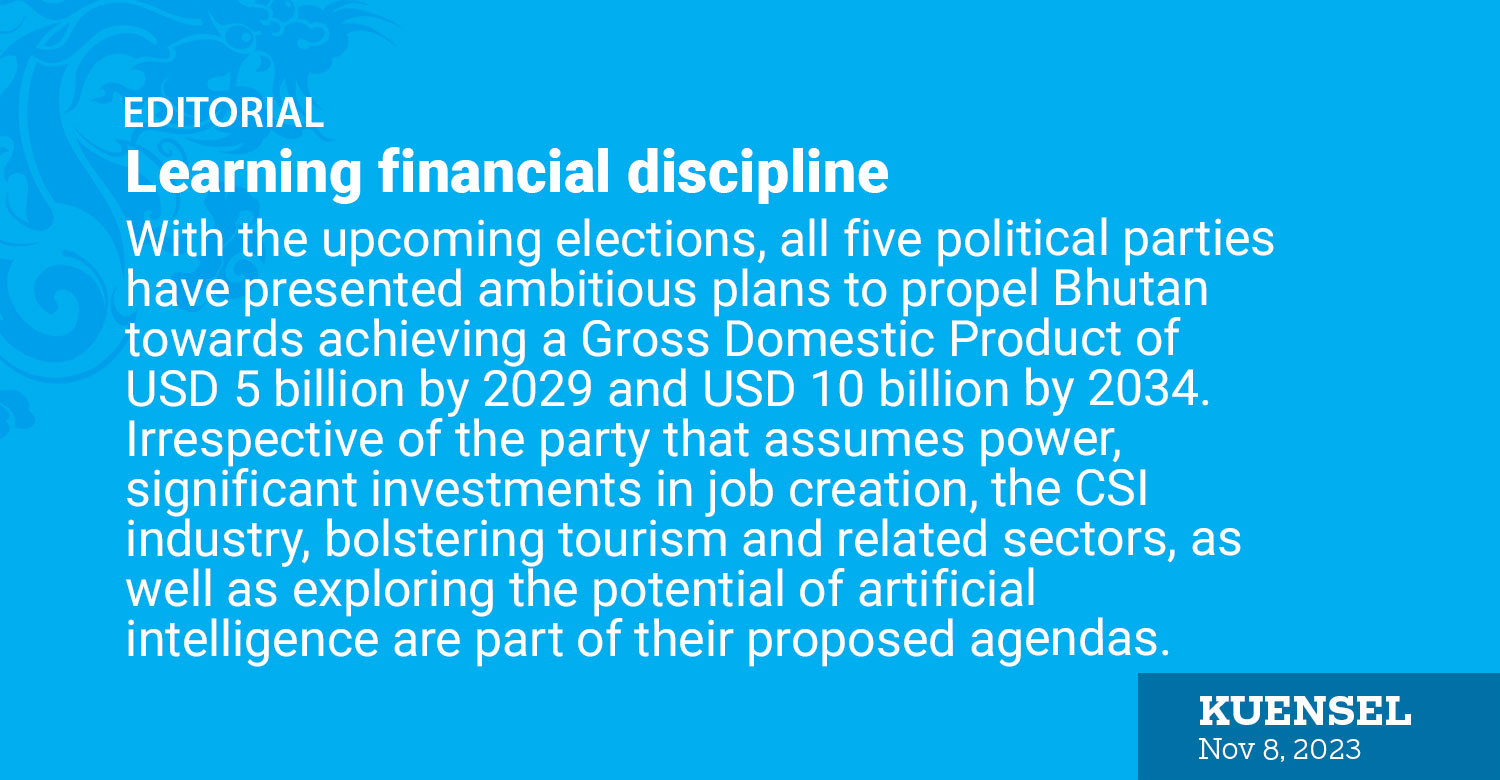With the upcoming elections, all five political parties have presented ambitious plans to propel Bhutan towards achieving a Gross Domestic Product of USD 5 billion by 2029 and USD 10 billion by 2034. Irrespective of the party that assumes power, significant investments in job creation, the CSI industry, bolstering tourism and related sectors, as well as exploring the potential of artificial intelligence are part of their proposed agendas.
One pressing issue that demands attention among the Bhutanese populace is the lack of financial literacy and discipline in managing expenses.
There have been some efforts from the Royal Monetary Authority and banks, particularly in commemorating International Savings Day each October. However, the challenge remains: while our coffers may see growth, they might as well be draining through wide crevices of financial indiscipline both at our individual and at the government levels.
We need a multi-pronged approach that involves education, family involvement, and mentorship that can help instill financial discipline and a saving culture in our youth. Creating an environment that encourages learning and responsible financial behaviour from an early age is essential to building a financially responsible and empowered generation.
This concern extends to our aspiring political leaders, who have come up with grand proposals and an inclination towards large borrowing. Over the past 15 years, several well-intentioned programs have floundered due to hasty attempts to fulfill populist pledges, leading to indiscriminate distribution of costly incentives and significant expenses with limited productive outcomes.
Looking beyond individual behavior, the nation needs leaders who allocate funds judiciously, especially in a country facing resource constraints. Such financial discipline isn’t solely a factor contributing to financial freedom; it forms the bedrock of financial stability.
As various promises continue to be made in the political arena, it becomes imperative to pose a straightforward question to both ourselves and those making these commitments: Where is the money going to come from? Equally significant, do these expenditures truly serve a crucial purpose?
A governing party may acquire substantial loans, complete their tenure, and then fade into into obscurity. However, the enduring aftermath and substantial debts accumulated over the years during their term will burden our future generations.
Addressing financial discipline at a national level is not just a matter of immediate concern but a necessity for securing our future. Sustainable economic progress demands prudent financial management and a cautious approach to spending. As the nation gears up for future development, it is vital to prioritise fiscal prudence, ensuring that each expenditure aligns with the genuine needs and long-term interests of our country and people.


